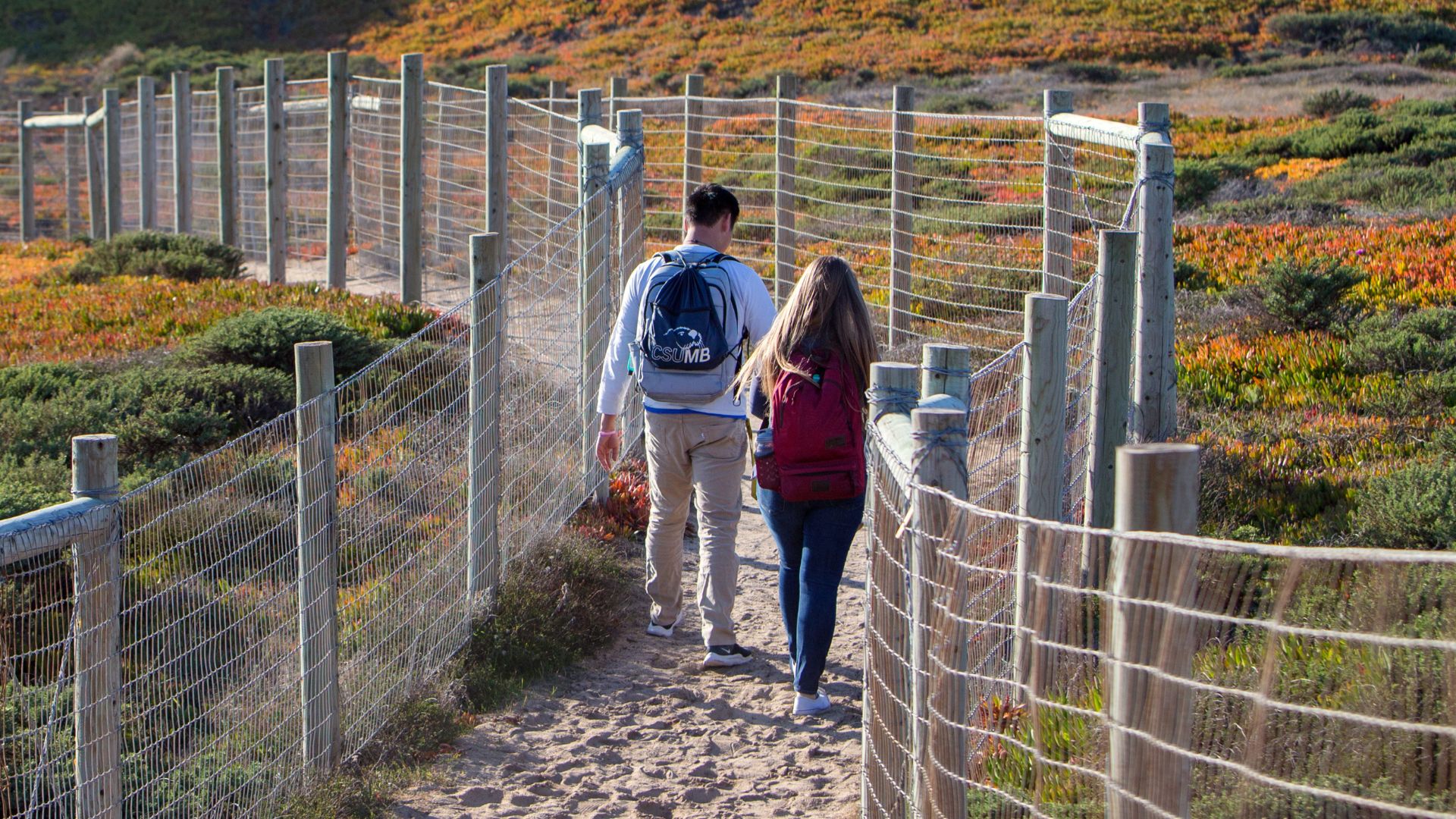CSUMB Expertise: Love and relationships

December 19, 2022
By Mark C. Anderson
Something unexpected happens with an increasingly popular class at CSU Monterey Bay: Associate Professor Shannon Snapp tries to persuade some students to drop it.
After teaching her “How to Love” class for a half decade, the associate professor of psychology says the class is deeply challenging and very personal, demanding brave self-analysis, and plenty of students are reluctant to dive into their past, present and future.
“It’s extremely vulnerable-making to interrogate what you know about love and construct something new for yourself,” Snapp says. “Some people are just not ready yet. We talk about grief, early childhood wounds, boundaries — and that can be hard work.”
Snapp’s curriculum is constructed around her collected wisdom from experts in interpersonal relationships and self-love. Those include The Gottman Institute’s The Love Prescription and the University at Buffalo’s Self-Care Starter Kit.
The outcome is that more and more CSUMB students want to sign up; this coming spring semester she’ll lead three full sections of the course.
-1080x1080.jpeg)
Associate Professor Shannon Snapp
Question: What are some best practices to help a person love themselves?
Snapp: Some starting points [include] changing the way we speak to ourselves, and identifying internalized messages that we’re “not enough.” Many of us have an Itty Bitty Shitty Committee in our head. The practice to reverse that is to treat yourself as your own best friend. How would your best friend respond to that thought?
Another practical tool is to ask for your needs to be met. That might seem basic, but a lot of us grew up in households where it wasn’t OK to have needs, and it wasn’t OK to ask them to be met. Another piece is that a lot of people have difficulty saying “no,” even when it comes to people and responsibilities that are draining. Learning to say no unapologetically can be powerful.
What are good tools to sustain a relationship over the years?
The Gottmans have what they call The Love Lab, through which they have been doing research on long-term relationships for a long time. A book called The Love Prescription is hot off the presses, and I pull from that seven essential tips to give couples to sustain, nourish and create more joy. I also use the book Attached: The New Science of Adult Attachment and How It Can Help You Find and Keep Love.
One big one is looking for — and making — bids for connection, however minor, and noticing those in your partner: “Hey, I wanted to tell you about a thing that happened.” Or, “I heard a song on the radio and I wanted to share it with you.” In healthy relationships that have stood the test of time, the partner will turn and listen, even if they’re not all that interested in whatever it is.
What are some of your favorite exercises to aid student understanding of self-care?
Some of the things we do in the Love Class is go through areas of self care, from physical to emotional to relational to spiritual. Maybe I do physical well, but not emotional. It’s a good gauge on where you stand and what needs improvement.
As a society, why don't we teach more about love, compared to things like language, math and science?
One, because it’s too vulnerable and we’re not good at being vulnerable. My second thought is — I don’t think there’s anyone else teaching it in the country. We thought [love] should be learned in our home environment, so we don’t need to teach it in school. Teaching people to love is threatening to the status quo. If we really teach people how to love, then all the oppressive systems we've created would begin to transform. Teaching people how to love would lead to more harmony, peace, and equality. It would mean we shift our collective priorities.
What are your thoughts on the phrase love is a verb?
In the book All About Love by bell hooks she quotes someone named [M Scott] Peck: “Love is a choice; love is an action plus an intention.” The Gottmans say, “Love is a practice more than a feeling.” It’s easy to buy into the fantasy that you’re just going to feel warm gushes of romantic love toward your partner forever. Realistically that’s not going to happen. That doesn’t mean there isn’t love. You have to keep putting in what they call daily doses of love. And receiving them. It requires a lot of action.
This reminds me of studies that show smiling, even if you’re not 100 percent feeling like smiling, makes us happier and more likely to smile over time.
Doing it and becoming it. We start working on these practices and by the end of the class, students say, “I might not always do it, or do it well, but now I know how to love myself.” I think of self love as not abandoning one’s self — I think of being your own most loving parent. We have to learn how to do that. We weren’t taught it. Once we start doing it, it feels really good: “I can be with myself. I’m awesome.” Things shift.